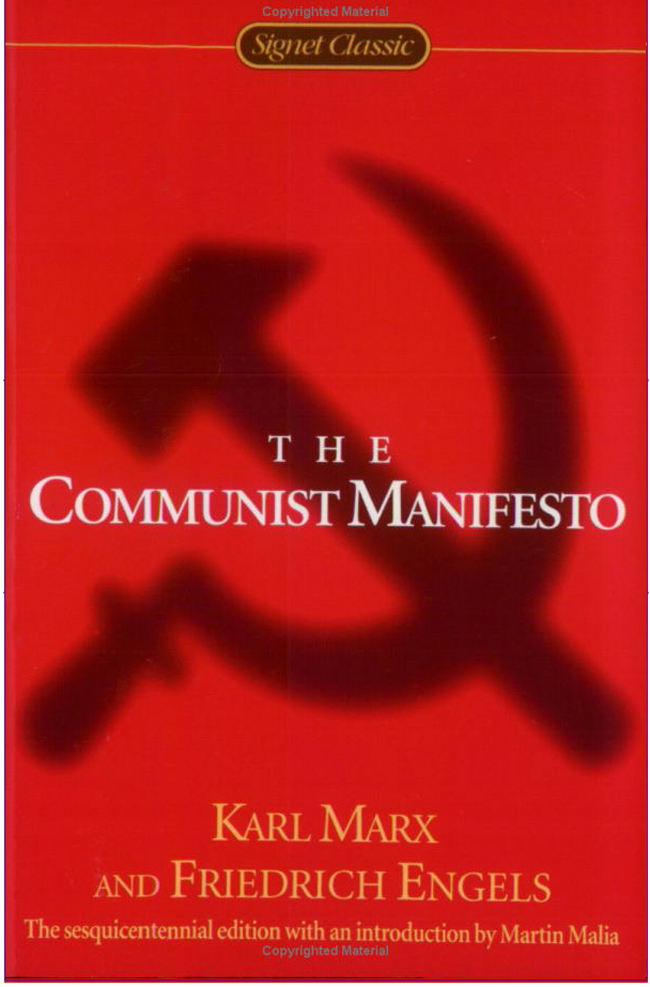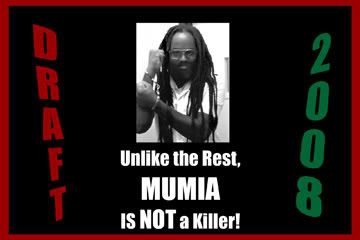From Starbucks to GM, Class Struggle Persists on Sam's Plantation

From the racist debate surrounding the Dubai ports sale, to the Enron fraud, to the job-slashing acquisition of BellSouth by AT&T, to the recent attacks on workers at GM/Delphi, to the IWW's ongoing effort to unionize Starbucks; the work of Karl Marx (especially his 3 Volume exposé of the capitalist system, Das Kapital) has never been more relevant.
Marx exposes how the development of capitalism creates its own contradictions - how it develops and exploits a working class that labors exclusively for the benefit and enrichment of the capitalist. Centrally, he shows how, even as capitalism savagely oppresses workers, workers drive the system.
We cannot lose sight of this central thread running through Marx's oeuvre: the working class will liberate itself only by using the tools and weapons capitalism has created to fight a tireless class war against the exploiters and the ruling class insitutions whose very existence depends on profit gained by exploiting labor.
From the boardroom to the courtroom, Marx's analysis animates our world. Recent events - the attack on workers as GM and Starbucks' union-busting campaign - demonstrate this truism.
Writing in the Detroit Free Press, Michael Ellis reports today:
When Marx speaks of class war, he's referring to moments like this. Not an offensive war, but a defensive struggle against the rapacious greed of the ruling class elites playing Robin Hood in reverse.
 With minimal help from organized labor and progressive activists, the Industrial Workers of the World continues to fight that very type of rearguard action in their campaign to organize Starbucks. And after yesterday's favorable ruling by the stridently anti-labor NLRB, that campaign seem seems poised for victory. Some highlights of the ruling include:
With minimal help from organized labor and progressive activists, the Industrial Workers of the World continues to fight that very type of rearguard action in their campaign to organize Starbucks. And after yesterday's favorable ruling by the stridently anti-labor NLRB, that campaign seem seems poised for victory. Some highlights of the ruling include:
Marx exposes how the development of capitalism creates its own contradictions - how it develops and exploits a working class that labors exclusively for the benefit and enrichment of the capitalist. Centrally, he shows how, even as capitalism savagely oppresses workers, workers drive the system.
We cannot lose sight of this central thread running through Marx's oeuvre: the working class will liberate itself only by using the tools and weapons capitalism has created to fight a tireless class war against the exploiters and the ruling class insitutions whose very existence depends on profit gained by exploiting labor.
From the boardroom to the courtroom, Marx's analysis animates our world. Recent events - the attack on workers as GM and Starbucks' union-busting campaign - demonstrate this truism.
Writing in the Detroit Free Press, Michael Ellis reports today:
General Motors Corp. announced a sweeping change in direction Tuesday that will place more of the burden on workers to save for their retirement.This is class war. Without any consent or consultation with the employees, GM's executives stole $2,000,000,000 from its workforce without thinking twice. Adding further insult to injury, last month G.M.'s vice chairman, Robert A. Lutz (who made $2,200,000 in 2005) argued against executive pay cuts in 2006, "since executives did not receive cash bonuses in 2005."
The changes are the latest hit to benefits for GM's 42,000 salaried workers who have already been forced to pay more for health care while losing other perks such as tuition reimbursement...
GM's hourly retirees also have seen changes to their benefits. Under a tentative deal reached between GM and the UAW last year, union members would pay monthly health care contributions, annual deductibles and coinsurance costs for the first time.
When Marx speaks of class war, he's referring to moments like this. Not an offensive war, but a defensive struggle against the rapacious greed of the ruling class elites playing Robin Hood in reverse.
 With minimal help from organized labor and progressive activists, the Industrial Workers of the World continues to fight that very type of rearguard action in their campaign to organize Starbucks. And after yesterday's favorable ruling by the stridently anti-labor NLRB, that campaign seem seems poised for victory. Some highlights of the ruling include:
With minimal help from organized labor and progressive activists, the Industrial Workers of the World continues to fight that very type of rearguard action in their campaign to organize Starbucks. And after yesterday's favorable ruling by the stridently anti-labor NLRB, that campaign seem seems poised for victory. Some highlights of the ruling include:- The reinstatement of IWW members, Sarah Bender and Anthony Polanco, who had been discharged for their union activity in order to discourage other workers from making a free and fair choice about whether to join the union.
- The invalidation of Starbucks' national policy that prohibited the sharing of written union information and joining the union on company property.
- The invalidation of Starbucks' national no-pin policy. Workers had been banned from wearing IWW pins and had been sent home from work without pay for refusing to take them off.
- An agreement by Starbucks to end threats, bribes, and surveillance of union members.







<< Home